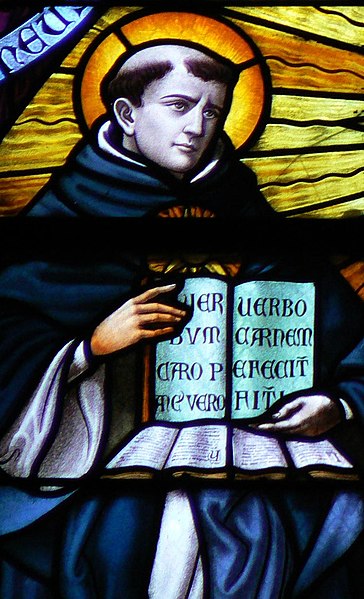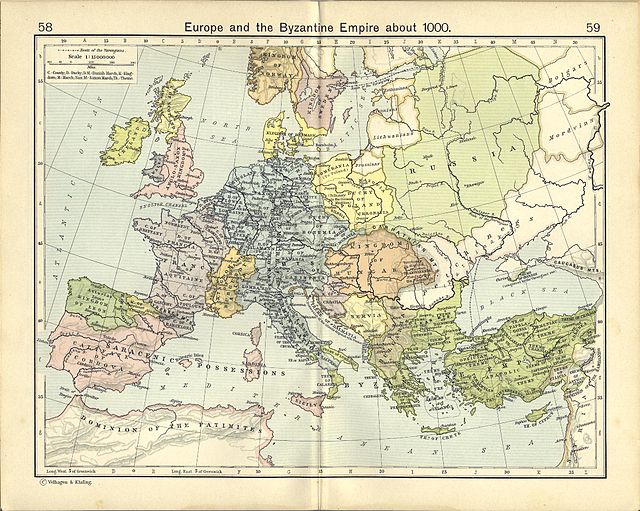Pange lingua gloriosi corporis mysterium
"Pange lingua gloriosi corporis mysterium" is a Medieval Latin hymn attributed to Saint Thomas Aquinas (1225–1274) for the Feast of Corpus Christi. It is also sung on Maundy Thursday during the procession from the church to the place where the Blessed Sacrament is kept until Good Friday. The last two stanzas are sung at Benediction of the Blessed Sacrament. The hymn expresses the doctrine that the bread and wine are changed into the body and blood of Christ during the celebration of the Eucharist.
Thomas Aquinas is shown here holding a book with an excerpt from the Pange Lingua.
Medieval Latin was the form of Literary Latin used in Roman Catholic Western Europe during the Middle Ages. In this region it served as the primary written language, though local languages were also written to varying degrees. Latin functioned as the main medium of scholarly exchange, as the liturgical language of the Church, and as the working language of science, literature, law, and administration.
Carmina Cantabrigiensia, Medieval Latin manuscript
Europe, AD 1000
An illuminated manuscript of a Book of Hours contains prayers in Medieval Latin.
The Prüfening dedicatory inscription from Bavaria, dated to 1119, composed in Medieval Latin. It was printed rather than carved.





